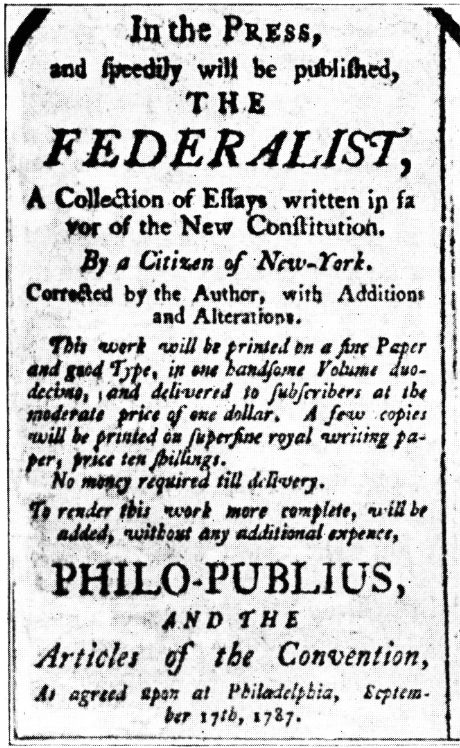The Benefits of a Negative Veto - Federalist #73
In Federalist #73 Alexander Hamilton takes a close look at the relationship between the President of the United States and Congress.
Federalist #73
Alexander Hamilton
March 21, 1788
In Federalist #73 Alexander Hamilton looks at two aspects of the Presidency in relation to Congress.
First, he takes a quick look at the President’s salary.
Then, he takes a deep dive into why the Constitution has structured the veto power in the way it has.
Paying the President
Hamilton only briefly discusses the President’s salary at the beginning of this Paper, most likely because it is fairly obvious and does not warrant its own article.
Specifically, he notes that Congress can not change the amount a sitting President is getting paid.
As Hamilton puts it, Congress would, “either reduce him by famine, or tempt him by largesses.”
In other words, to control the President, Congress could either threaten to stop paying him or tried to bribe him with riches.
This problem is avoided by only giving them the ability to change the salary of a future President.
Veto Power
Hamilton then goes on a long review of the President’s veto power.
It essentially boils down to the idea of a ‘qualified negative.’ This means that the President can’t just deny any law from being passed (like the King of England could).
The President can veto a law but, if Congress REALLY thinks it should go through, the veto can be overridden with a ⅔ majority in both Houses.
For Hamilton, this allows for a strong Executive who can stop hastily passed laws which are based on the flippant passions of the people while still allowing the Legislature to defend itself from a President who attempts to assume too much power.
I publish Federalist summaries every Friday (and stories about random Founders the other six days of the week).
If you’ve missed a Federalist Friday, you can catch up here.
Do you love what the Founders had to say?
Me too…that’s why I put some of their quotes on some of my merchandise.
Check it out here:






